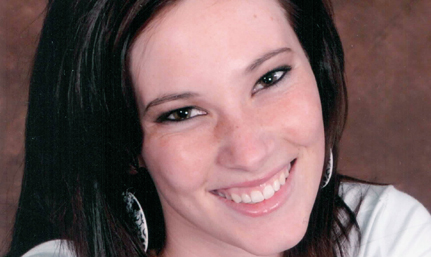|

|
Joanie van der Merwe
Photo: Supplied
25 October 2012 |
Another Kovsie student has been awarded the prestigious Mandela Rhodes Scholarship. Joanie van der Merwe, a B.A. Honours Communication Science student, has been selected as one of 29 students from across the continent to receive the scholarship for 2013. The scholarship is awarded to young Africans who demonstrate academic and leadership potential.
This is the second successive year that the university has produced a Mandela Rhodes Scholar. Kovsie student Jaco Griessel was one of 23 students who received the bursary in 2011 for studies this year.
Joanie, who also holds a BA Honours Psychology degree, will study for her Master’s degree in Media Theory and Practice at the University of Cape Town next year. During the scholarship, she will be granted access to leadership development programmes. The scholarship covers study and registration costs, study material, accommodation and a living allowance.
Joanie says family urged her to apply for the scholarship. “After coming to terms with what the scholarship entails, I realised that I identify with the values and characteristics to which Mandela Rhodes scholars aspire.”
“I have a dream of forming an integral part of the continent in such a way that I will be able to serve others and empower the community where it is needed most. I want to live in such a way that my trials and mistakes are not wasted. They should be learnt from and be used to inspire and encourage others.”